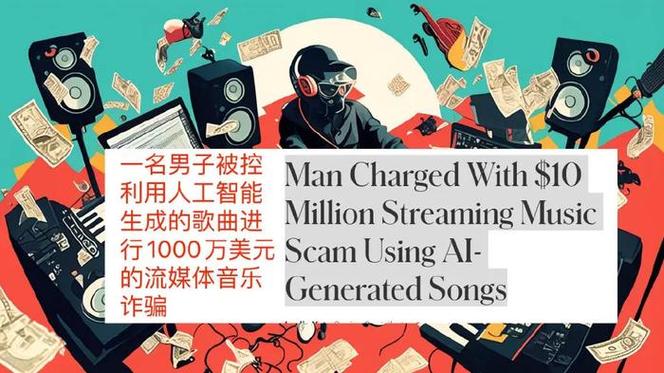
Is It Legal to Make Money from AI Music?
Artificial intelligence (AI) has revolutionized various industries, and music is no exception. With the advent of AI music generators, artists and producers are now able to create music at a fraction of the time and cost. However, the question of whether it is legal to make money from AI-generated music remains a topic of debate. In this article, we will explore the legal aspects of making money from AI music from multiple dimensions.
Understanding AI Music
AI music refers to music created using artificial intelligence algorithms. These algorithms can analyze existing music, learn patterns, and generate new compositions. AI music generators, such as Amper Music, Jukedeck, and AIVA, allow users to create music by selecting genres, tempos, and other parameters.
Copyright and Intellectual Property
One of the primary concerns regarding AI-generated music is copyright and intellectual property. According to the United States Copyright Office, a work is eligible for copyright protection if it is an original work of authorship fixed in a tangible medium of expression. This raises the question of whether AI-generated music qualifies as an original work.
Some argue that AI-generated music is not eligible for copyright protection because it lacks human creativity. However, others contend that AI-generated music can be original and creative, especially when combined with human input. In 2018, a court in Germany ruled that AI-generated music could be protected under copyright law, setting a precedent for the industry.
Intellectual property laws vary by country, so it is essential to consider the specific legal framework in the region where you plan to make money from AI music. For instance, the European Union has a more lenient stance on AI-generated music, while the United States and Japan have stricter regulations.
Licensing and Distribution
Even if AI-generated music is eligible for copyright protection, it is crucial to obtain the necessary licenses for distribution. This includes obtaining synchronization licenses for using AI music in videos, films, and advertisements, as well as mechanical licenses for distributing the music on physical or digital platforms.

When distributing AI-generated music, it is essential to ensure that you have the rights to use any samples, loops, or other elements included in the composition. Failure to obtain the necessary licenses can result in legal action and financial penalties.
Monetization Opportunities
There are several ways to make money from AI-generated music:
-
Music Production: Create original compositions for clients, such as film, television, and advertising agencies.
-
Music Licensing: License your AI-generated music to other artists, producers, and content creators.
-
Music Streaming: Distribute your AI-generated music on streaming platforms like Spotify, Apple Music, and Amazon Music.
-
Merchandise: Sell merchandise featuring your AI-generated music, such as t-shirts, posters, and vinyl records.
Challenges and Considerations
While making money from AI-generated music is possible, there are several challenges and considerations to keep in mind:
-
Market Saturation: The AI music market is rapidly growing, which means competition is fierce. It is essential to differentiate your music and establish a unique brand.
-
Quality Control: Ensuring the quality of AI-generated music can be challenging. It is crucial to invest in high-quality AI music generators and fine-tune your compositions.
-
Legal Compliance: Staying up-to-date with copyright laws and obtaining the necessary licenses can be time-consuming and costly.
Conclusion
Is it legal to make money from AI music? The answer is yes, but it requires careful consideration of copyright laws, licensing, and distribution. By understanding the legal aspects and challenges, you can create and monetize AI-generated music responsibly and ethically.




